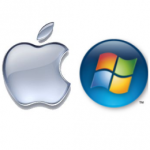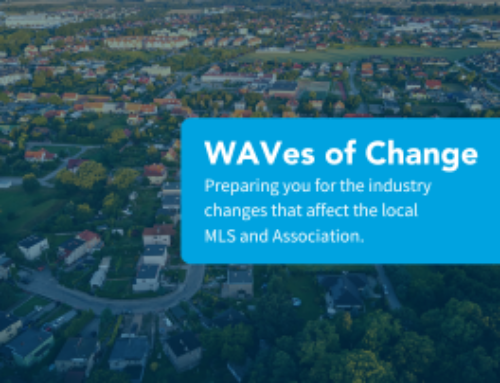 Today, there are numerous MLSs that have become dominant companies relative to their smaller competitors. In the world of survival of the fittest, one would assume that the large and strong eat the small and weak. But this is not necessarily true. For the purposes of this writing – I am using the term MLS to refer to MLS vendors and Regional MLSs.
Today, there are numerous MLSs that have become dominant companies relative to their smaller competitors. In the world of survival of the fittest, one would assume that the large and strong eat the small and weak. But this is not necessarily true. For the purposes of this writing – I am using the term MLS to refer to MLS vendors and Regional MLSs.
Most MLSs in the United States grew through merger and acquisition than through organic growth. As these companies began to reach dominant scale, they realized that they could provide agents and brokers quality MLS services more efficiently. In some cases, this efficiency bolsters the financial strength of their customer, in other cases it results in lower MLS dues (subscriber benefit), often it results in a broader breadth of subscriber services. This is all well and good strategically, but there are some significant problems caused by dominant scale too. The personal relationships that bond the company and customers is weakened, and customer loyalty becomes diluted (just ask Friendster).
There are several factors that influence the ability to retain customer loyalty, among them technological innovation, customer service, and educational prowess. However, one critical factor that has largely been ignored: the psychological forces that drive decisions consumers make and, specifically, the degree to which people feel they have choices.
To examine this phenomenon, we can evaluate WAV Group’s MLS System satisfaction research. One abundantly recurring observation is that consumer preferences are affected by interface-specific experiences. When agents are given a choice between two MLSs, the super majority (75%+) will choose the familiar MLS over a new MLS without regard to services, or features. People do not want to change what they know.
Driving deeper, surveys demonstrate that Agents rarely use many of the more exotic services or features that differentiate MLS. In the case of MLS vendor selection process, a new vendor is often selected on the basis of some specific features that, in most cases, the current vendor offers! Or worse, just as the conversion to the new system is complete, the old vendor delivers the feature plus some new features that your new system does not offer.
Dominant MLS companies need to focus on persistent customer training and relentless pursuit of world-class customer service to maintain customer loyalty. Retaining a dominant leadership position over a long period of time is really the measure of being able to develop user skills.
Remember when Microsoft had huge market share? They were so big and successful that they decided in 1998 to invest $150M into a nearly bankrupt Apple to ensure Apple’s survival. As it turns out, that was a great strategic move by Microsoft.
Microsoft knew that Apple users were loyal to the company because they were highly skilled at using the Apple user interface. It is a simple thing to grasp.
Microsoft was (is) vulnerable in their operating system because users did not have any highly developed user skills. It is hard to set up a printer, hard to configure networking, hard to load products, hard to add peripherals, etc. People began to migrate when they learned that with a Mac – everything just works – no special user skills needed.
Most of us on Apple computers also use MS Office software on our Macs because we are familiar with Word, Powerpoint, Excel, etc. Trust me when I say that Keystone, Numbers, and Pages have all of the same commonly used functionality as MS Office (and many features that MS Office does not have).
1. Microsoft could have overcome their vulnerability through operating system upgrades – but they failed.
2. Microsoft could have overcome their vulnerability through great training and great customer support. But they truly failed there.
Implications for Market Leaders Given the risks of triggering revolts among current and potential users, market leaders should be careful about becoming too dominant and appearing too successful. Ironically, it may be good business to support and even cultivate competitors. When consumers believe they have freely chosen to use a Windows-based PC over a Mac, they may be substantially more likely to be loyal Microsoft customers. This also suggests that Microsoft, by investing $150 million in Apple in 1997 to ensure its survival (and thereby giving consumers a real choice in operating systems), may have taken an important step toward maintaining its dominance in its core PC markets.





Implications for Smaller Competitors Market
After reading this post – I felt like it may be helpful to provide some feedback to smaller companies.
Leading companies will be at a disadvantage if their customers feel like they are being taken advantage of. Some brokers used to feel this way about REALTOR.com, which may have given raise to Trulia, Zillow, Homes.com and a host of others. To me, I hear little of this sentiment today.
Small companies can appeal to big company customers who are motivated to find reasonable alternatives offered by other, perhaps smaller players, particularly if they are able to deliver great .
Given the choice, small companies might be better off maintaining the image of being small. This could influence customers to see the user interface as easier and more attractive than it otherwise would seem.
Ironically, the early success of a new online service (such as iPhone’s app store) may also make it more vulnerable to competition (like from Google’s Android apps).
There is still much that we do not know about how dominant companies might be able to counteract the ill will from being big and successful. It’s possible, for example, that when a company leads the market by rapidly refreshing and innovating within its product lines — as Apple has done with its iPod, iPhone and iPad — it can continually exceed consumers’ expectations and minimize negative consumer sentiments.